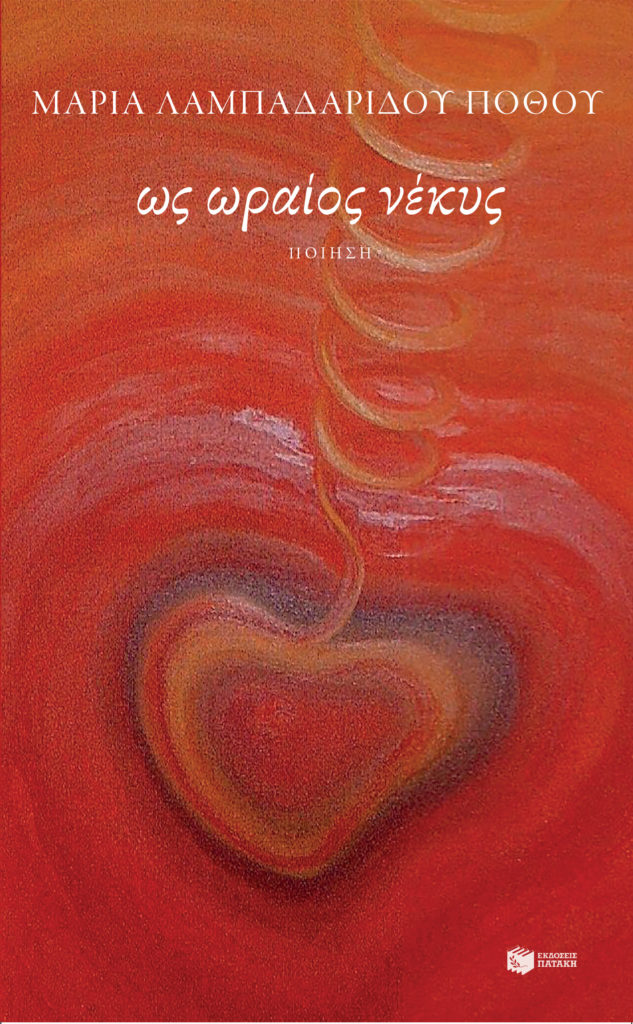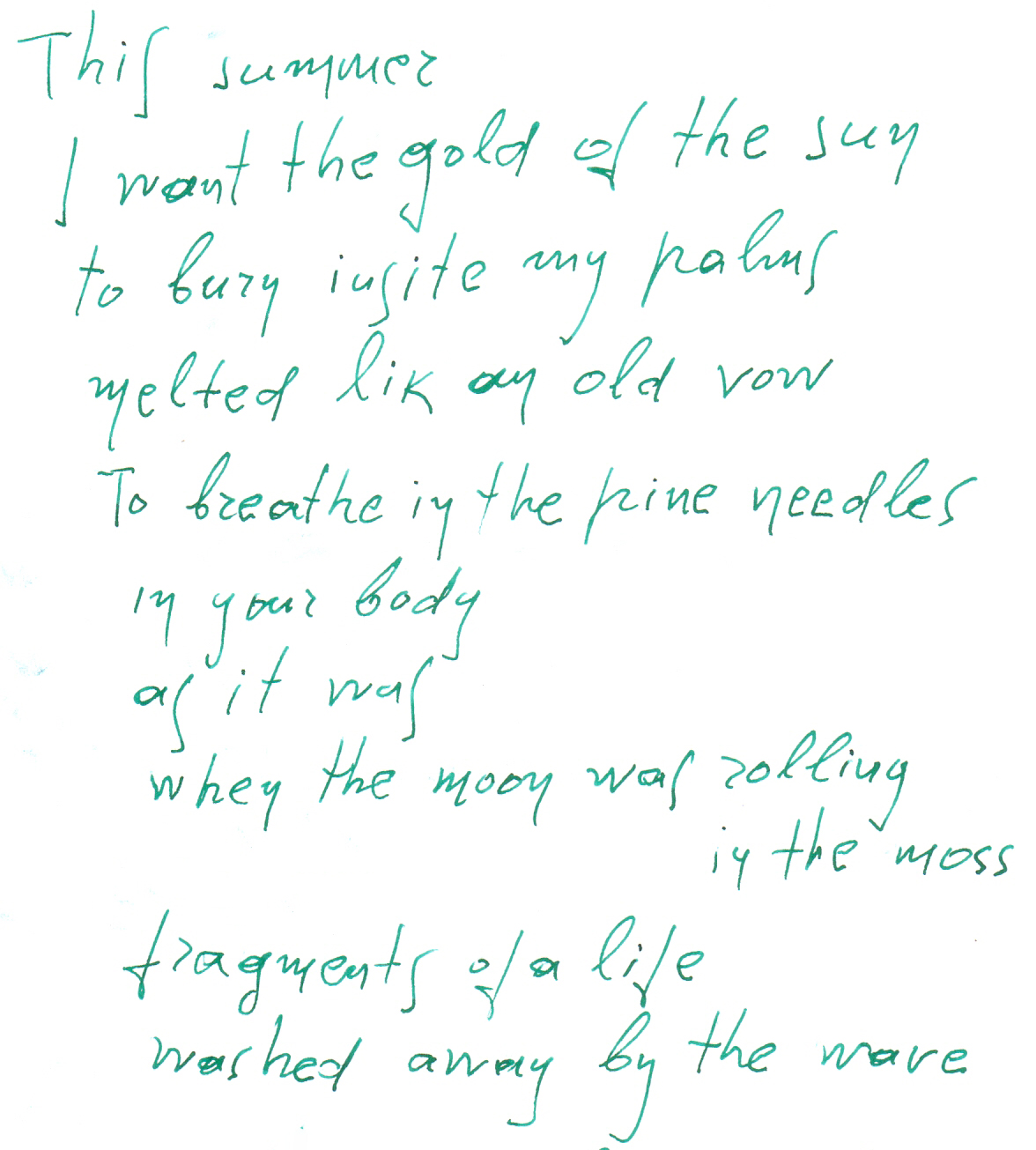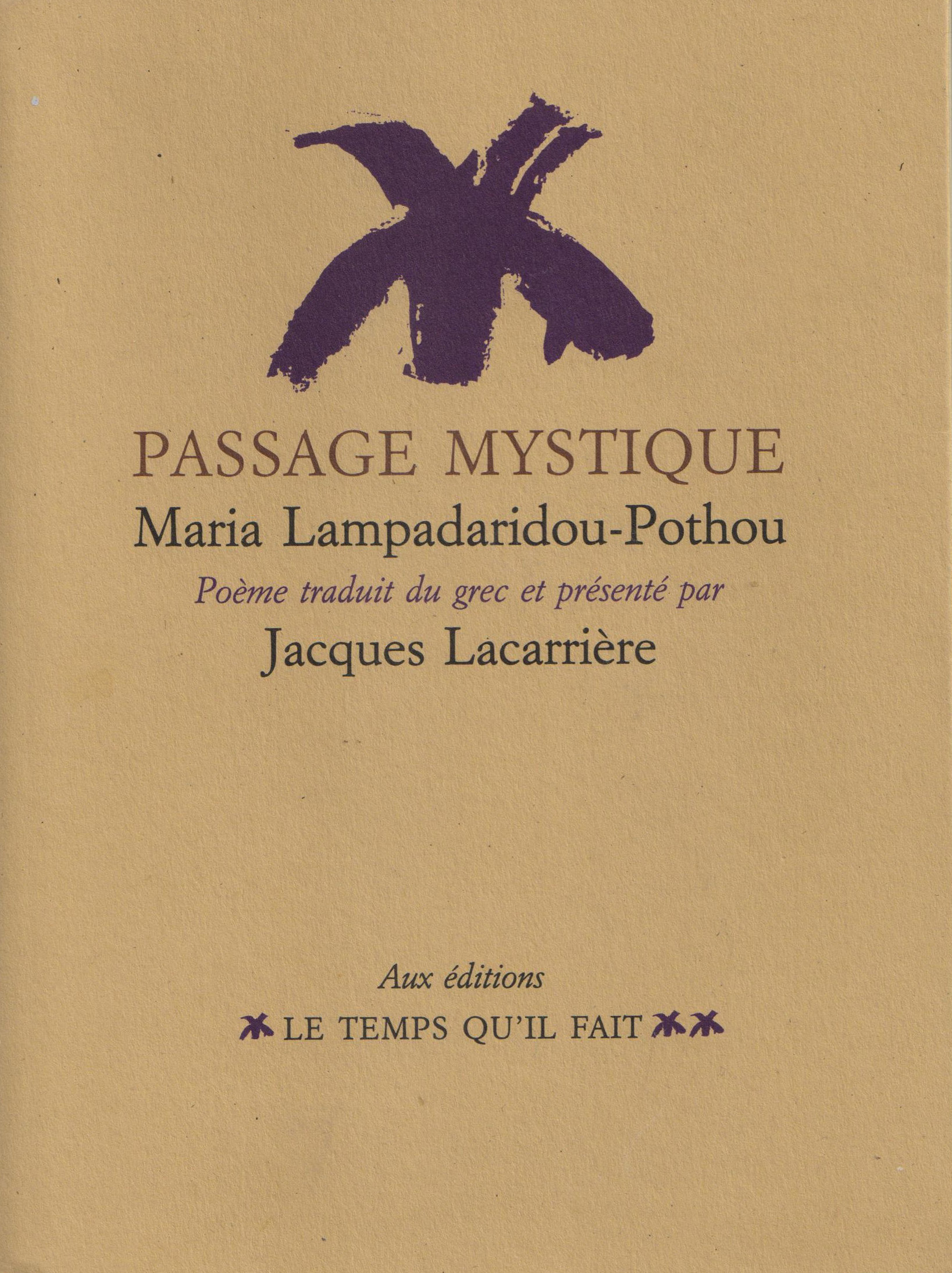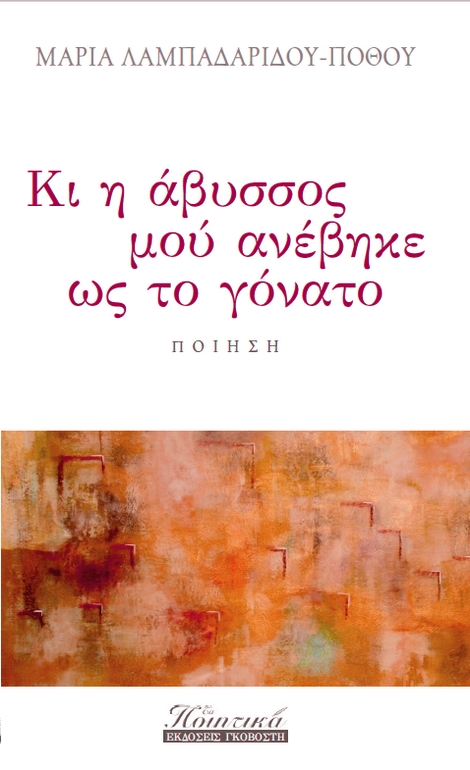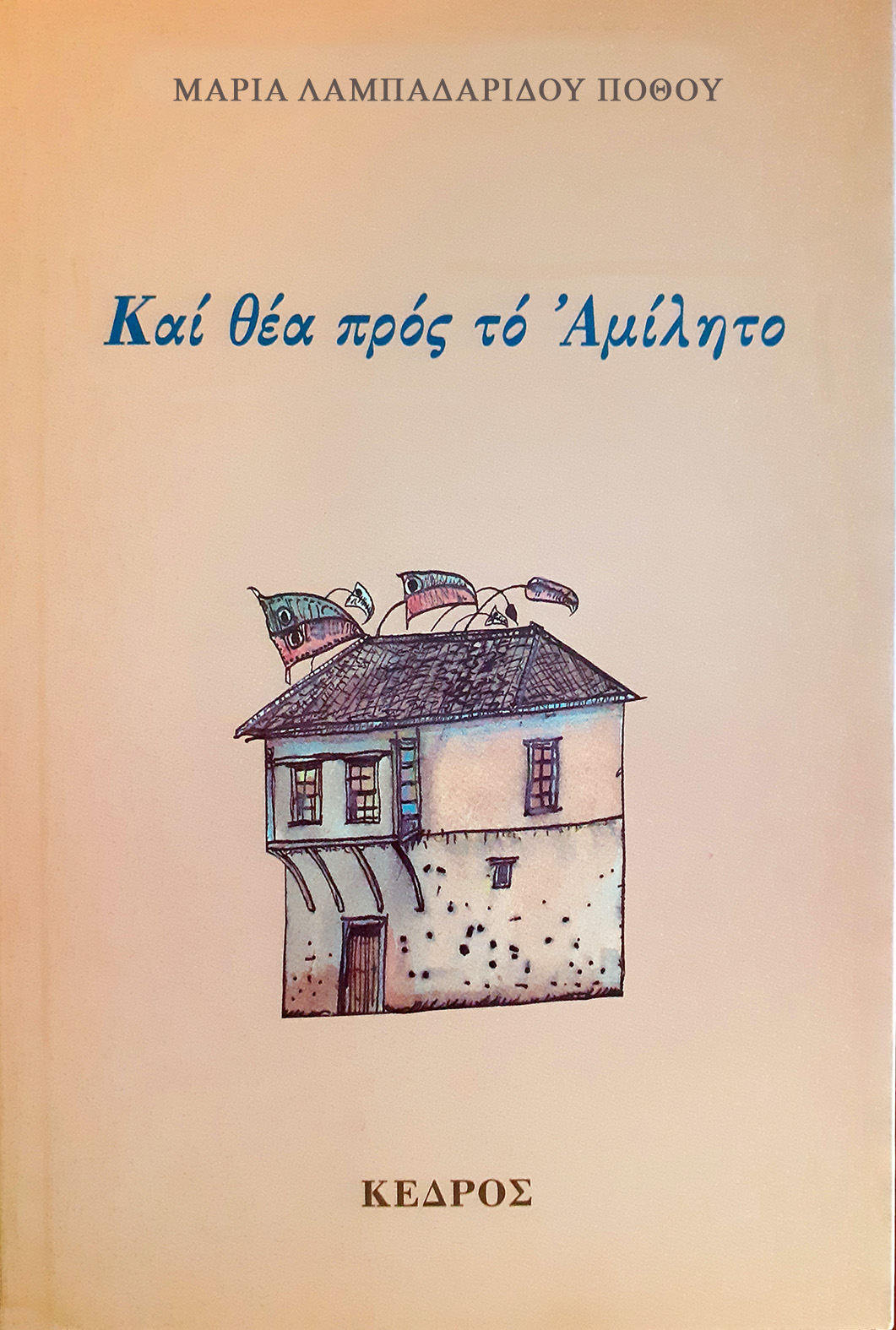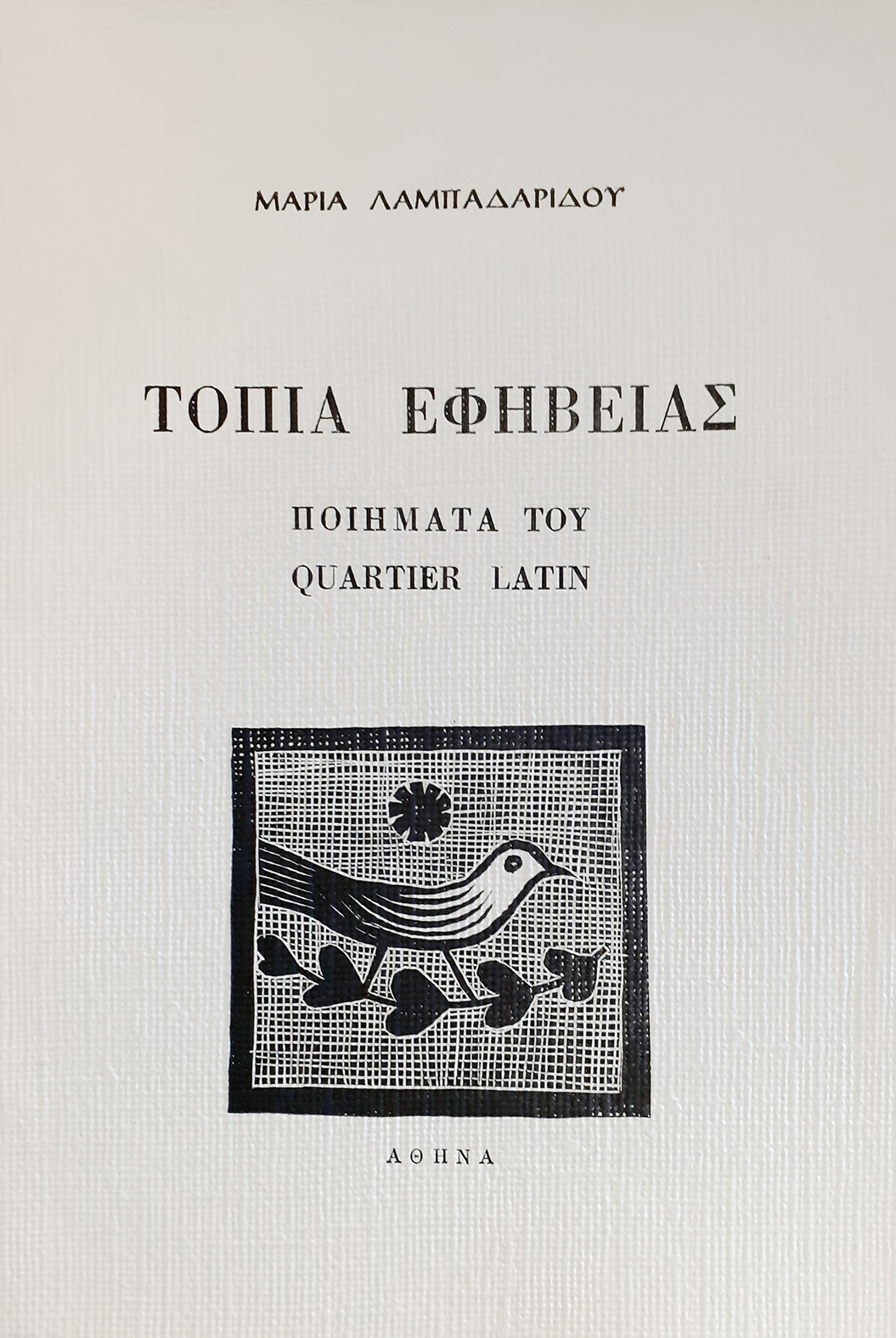Poetry has always been for me the raw material of my books
There will always be the wheat
that you have never harvested
"Poetry has always been for me the raw material of my books, the metaphysical element of my vision." I had written this in my diaries when I was still gathering myself from what I had experienced. And I had even written that "poetry is the primordial material of lost memory, or else, the treading of the soul in the abyss". Half a century later, I mean the same thing. And more: “We are creatures incomplete, creatures, of deprivation. Our desire to transcend is deprivation, or else the pain for our incomplete self. "
Today i live the youth of transparency.
It's the youth of inner visions.
It helps you transcend the pain of ephemerality.
But also helps you to see your truths differently.
This is how I want to think about the passage of time. With Plotinus's reverse youth. And with Elytis's verse: "the light working the flesh" as if it's a precious jewel. When I was young I was scared of wrinkles. I was scared to think that one day my face would be wrinkled. Today I love them. The paths of my life are there. And it is the transparency that sets free the inner visions. For me this is poetry.
I’ m a poet. And then I put the poetry in the drama, I put it in
short stories, and I put it in the plays. Poetry’s poetry.
It doesn’t have to be called a poem, you know.
Tennessee Williams, in interview in Writers at work (6th series, 1984)
At one point I saw that poetry exists not only as transcendence or as the lost sanctuary of the soul, but as something more: It is a function of existence. And afterward, when I was introduced to surrealism, I realized that some of my novels are my purest poetry. Tennessee Williams' words simply confirmed what I was feeling. I always believed in my intuition. I would say that nothing is truer than what the spirit senses when it is in front of its truth. Elytis says in Open Papers "I am not talking about the ability to compose lyrics, but about the other: to reconstitute the world literally and metaphorically." And more: "One more wrinkle in the face, one wrinkle less in the soul, that's what I expect, the absolute reversal, the transparency", he said. I have been very interested in the concept of this transparency, which is Plotinus' youth, in relation to poetry. And today with all these wrinkles, I feel this is where my poetic word lies. In this youth of transparency.
And I start with surrealism. Remembering my words, old ones that I haven't gotten over - since I was writing for the show "Walking and dreaming" on the State Radio: "Surrealism is our everyday life, as we exist on parallel levels, in parallel realities, where one emerges from the other, fragments of memory and dream, flashes from our lives."
So, my long experience of life and writing has taught me that, with poetry, you reconstitute reality by creating a new way of "meaning" and "being" and "thinking" and you reach the transcendence of what is real that is also a reversal, so you can compose your own poetic world. But this transcendence or reversal in fiction is not given by words but by the situations you create. Like Constantine of the folk song, in the Angel of the Ashes, when he turns back the arrow of time to gather drop by drop a glass of water from the mud where it was thrown. It is a picture transcending world order.
How I came to believe that poetry is a function of existence:
It is an expression I first mentioned in an interview for the Eleutherotypia newspaper about "Mystic Passage". When I was asked how it is possible for me to exist in so many different forms of literature. I remember saying (and I remember because I was interested in this afterward) something I also mentioned in "Gathering my belongings", that: “I know that my first material is poetry. I started with poetry and only through poetry can I seek my intuition of the world and of existence. Something like that. For poetry is not a function of speech, but a function of existence. It is a constantly changing way of thinking and being in the world. And to go further, it is the 'mind that moves and matter that transforms' as told by Anaxagoras."
I was upset by those words. There are simple people, with the wisdom inside. They have nothing to do with poetry and yet moments of their lives are poetry. They exist, they function, inside the invisible ritual of poetry that brings them to ecstasy and transcendence, bringing them to what is the essence and meaning of life. One morning, I had found myself on a farm in Lemnos, in Kotsina village. I saw from afar a woman working in her field and saying something. She was holding a large pestle, picking tomatoes and beans, and was singing. I approached discreetly. The woman saw me, but she didn't care. Her eyes were red like blood. She wore black. I tried to talk to her but her gaze stopped me. And then she sang, I hardly remember the lyrics, "Don't ask me, I know nothing of the world anymore." She seemed like a face from an ancient tragedy. "My boy has departed and the world has gone dark," she sang again. And I understood. Mother, I said. The mother of folk song.
He was thirty one years old glowing like the sun
Glowing like the morning star and look at me his poor mother
And then she would sing. As if the lyrics were flowing over her. A woman who certainly had never heard of poetry. And yet she was poetry. At its deepest in its most essential function.
Thirty one years old, tall as a cypress
He is gone and the sun and and the stars have gone dark
Like an eagle being struck by lightning
And at the same time, she picked tomatoes and beans. Some similar moments - experiences, but also my own intuition - led me to believe that poetry, beyond embellished words, is a function of existence in the deepest most meaningful expression of the human soul. After all, this is how our folk song was born.
Poetry liberates. It is a triumph of existence against time. Even when it talks about traumatic things. That is its power. I was once asked what pain means to me. The poet hurts like all fragile and vulnerable creatures. We experience loneliness and, at the same time, we are involved with all the events on the world stage, participating and sharing. But our personal pain, the pain that has marked us, is not easily shared with the reader. It belongs to the sanctuaries of the soul. That's why I was so overwhelmed with the publication of my biography, "Paths of My Angel". I tried to give as little as possible about my life, to share only about the time and the place, the circumstances or my beliefs each time a book was born. About the path. In the end, one cannot avoid the traumatic event. Because, in essence, it's what shapes us.
I was also asked what it means: "Poetry is the treading of the soul in the abyss"
I have to start with how I personally experienced the abyss, this unsurpassed curve of Samuel Beckett. How it became a structural element of my poetry, of my whole work. How I saw the abyss "up and down one" as Heraclitus said. How I gave it through my novel "Anniversary of Roses", where there is the concept of the abyss as an element of the ancient tragedy of the woman losing her child. Words are experienced. It is the inner struggle of the soul. This is where the "by the pure purified" orphic poetry emerges from.
m.l.p.
Ομιλία σε τιμητική εκδήλωση με πρόεδρο την ποιήτρια Ζωή Σαμαρά, στο Κιλκίς
Poems
in the days of coronavirus
This summer I want to become an enormous Word
like a road that reaches the stars
and shines
a word with three syllables or even four
to contain all the others - like sea or I come!
As I shine


